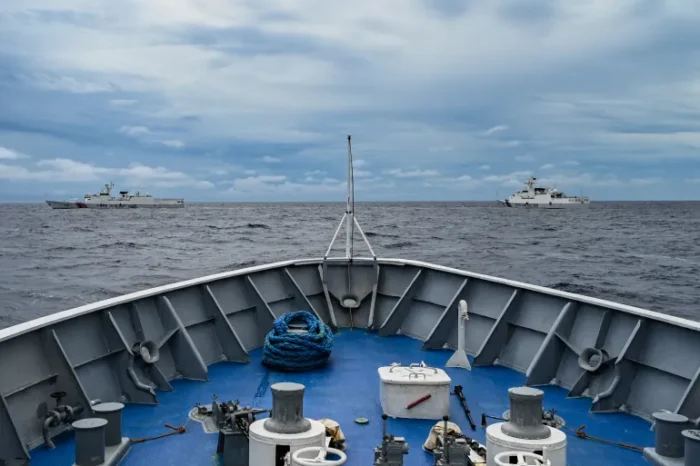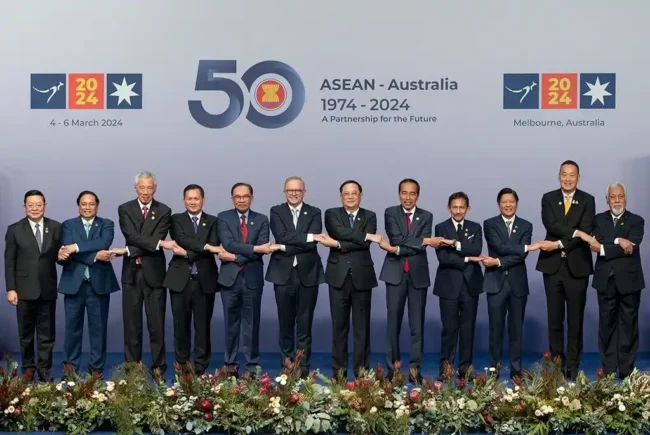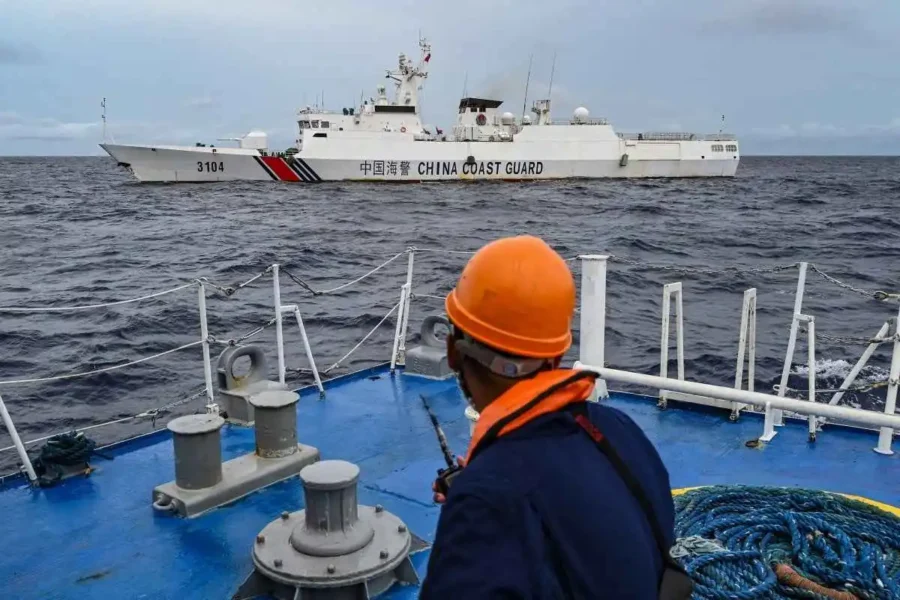ISLAMABAD (TDI Special): The South China Sea, a critical and strategic waterway where estimated $3.4 trillion worth of trade passes annually, is a major point of contention between China and the ASEAN members.
The sea provides vital shipping routes for international trade and is home to several strategically important islands.
South China Sea Significance
Sino-Philippine Dispute
Years of conflict have occurred between China and ASEAN countries, particularly the Philippines in the contested sea.
Beijing claims authority over the majority of the waters that border with the Exclusive Economic Zones (EEZ) of ASEAN countries.
Read More: China urges Philippines to halt provocative actions in South China Sea
EEZ of any country extends up to 200 nautical miles from its territorial sea within which a coastal nation is allowed to establish its jurisdiction and exploit the natural resources, both living and nonliving.
Beijing and Manila have violently confronted multiple times in the disputed sea, especially in the Spratly Islands.
The Spratly Islands consist of a group of islets and reefs which are surrounded by crucial fishing grounds called shoals and the area is potentially rich in oil and gas.
This year in June, both Beijing and Manila clashed in the Second Thomas Shoal in which Chinese Coast Guards were seen brandishing axes at Filipino sailors. Both sides blamed each other.
In August, clashes occurred again, but this time at Scarborough Shoal and Sabina Shoal in the Spratly Islands, which overlap with the Philippines’ Exclusive Economic Zone (EEZ).
Read More: China Conducts Joint Military Drills in South China Sea
In 2016, a United Nations tribunal in Hague declared that China’s claims on the Nine-dash line had no legal basis.
The Nine-dash-line is a U-shaped area in the South China Sea which covers almost 90% of the sea. China refused the tribunal’s ruling and continued to advance its claims.
Moreover, this situation could escalate as the ongoing stand-offs between China and the Philippines may drag the United States because of the 1951 Mutual Defense Treaty signed between Washington and Manila.

This defense pact requires both sides to defend each other in case of attack from a third party which could result in a war between two global powers, the U.S. and China.
Code of Conduct for the South China Sea
At the October 2024 Summit of the 10-member Association of Southeast Asian Nations (ASEAN), the group called to speed up the negotiations on the long-awaited Code of Conduct for the South China Sea.
The summit was held on 11th October 2024 in Vientiane, Lao People’s Democratic Republic, and was chaired by Sonexay Siphandone, Prime Minister of Laos.
This Code of Conduct (COC) will allow the parties in conflict to manage the disputes peacefully and maintain stability in the Asia-Pacific region.

Read More: ASEAN and the South China Sea
The COC will include various legal protocols and rules for operating the sea which could prevent deadly clashes among China and the Southeast Asian countries.
Lastly, the need for a Code of Conduct (COC) is ever-increasing as both Beijing and Manila continue to clash by sending their vessels and personnel to the contested areas.
It is not yet confirmed whether the COC will be legally binding.
Sadia Memon is a Web Contributor at The Diplomatic Insight



